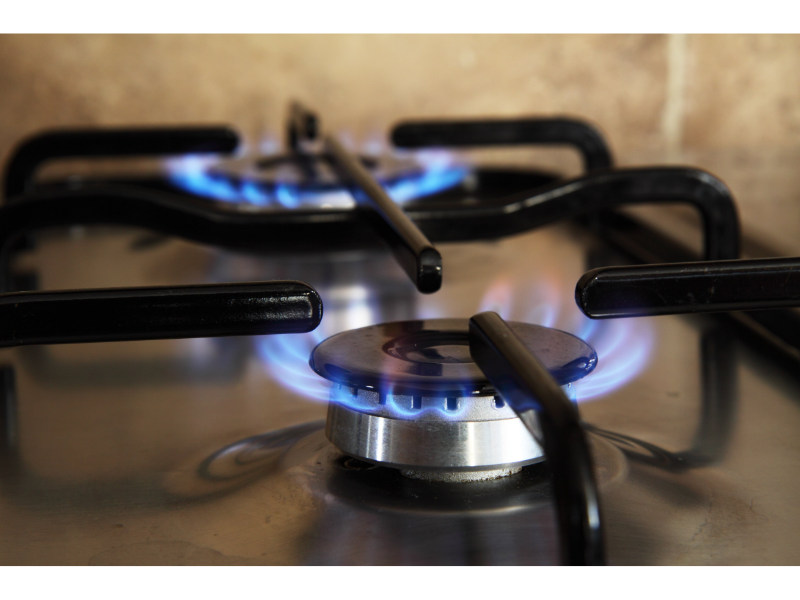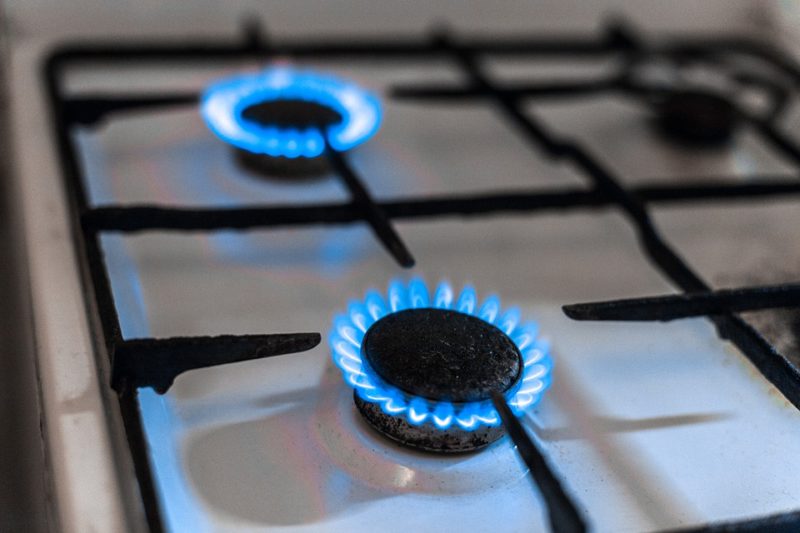Want to know more about How To Tell If Your Gas Stove Is Leaking? Read this article to get the information you need.

How to Tell If Your Gas Stove Is Leaking: A Comprehensive Guide
A Personal Story: When Gas Takes the Stage
In my former apartment, I loved to cook. The aroma of homemade lasagna filled the air, bringing warmth and comfort to my tiny abode. However, one evening, as I basted my roasted chicken, a faint but unmistakable odor wafted into the room. It was the pungent smell of gas. Panic ensued as I frantically turned off the burners and opened all the windows.
Gas Stove Leaks: A Silent Danger
Gas leaks from stoves can be a serious hazard in our homes, posing a risk of explosions, fires, and carbon monoxide poisoning. These leaks can be caused by several factors, including:
- Faulty gas lines: Pipes and hoses can develop cracks or become loose over time.
- Damaged seals: The rubber gaskets that form a seal between the stove and the gas supply can deteriorate or fail.
- Control valve issues: The valve that controls the gas flow can malfunction, allowing gas to escape.
- Improper installation: Stoves that are not installed correctly may have leaks in the gas line or connections.
Detecting Gas Leaks: Step-by-Step
Identifying a gas stove leak requires a keen eye and a few simple steps:
- The Sniff Test: Stand near the stove and take a deep sniff. If you smell a strong odor of natural gas (similar to rotten eggs), it could indicate a leak.
- The Bubble Test: Mix a solution of half dish soap and half water. Apply the solution to the gas lines, connections, and around the burners. If bubbles form, it indicates a leak.
- The Electronic Detector: Gas leak detectors are inexpensive and can detect even small amounts of gas. Place the detector near suspected leak areas to pinpoint the source.
- The Visual Inspection: Inspect the gas lines, hoses, seals, and connections for any signs of cracks, breaks, or damage.
Modern Developments in Gas Stove Safety
The gas stove industry is constantly evolving to improve safety. Newer stoves feature:
- Safety valves: These valves automatically shut off the gas supply if the flame goes out, preventing gas from escaping.
- Electronic ignition systems: Gas stoves with electronic ignition systems do not require a pilot light, which eliminates the need for a constant flame and reduces the risk of leaks.
- Smart gas detectors: These devices connect to your smartphone and can send alerts if they detect a gas leak.
Tips and Expert Advice: Keeping Your Stove Safe
- Regular Inspections: Have your gas stove inspected by a qualified professional at least once a year.
- Keep it Clean: Clean your stovetop and burners regularly to avoid blockages that can lead to leaks.
- Inspect the Flame: The stove’s flame should be blue. A yellow or flickering flame indicates an incomplete burn and could suggest a leak.
- Don’t Ignore the Smell: If you detect a gas smell, evacuate your home immediately and contact your gas provider or emergency services.
- Consider a Gas Shut-Off Valve: Install a gas shut-off valve near your stove so you can quickly turn off the gas supply in case of an emergency.
FAQ: Unraveling the Mysteries of Gas Stove Leaks
Q: What is the main cause of gas stove leaks?
A: Faulty gas lines, damaged seals, control valve issues, and improper installation are common causes of gas stove leaks.
Q: Is it safe to use a gas stove with a small leak?
A: No, even a small gas leak can pose a safety hazard and should be addressed immediately.
Q: What are the symptoms of carbon monoxide poisoning?
A: Headaches, nausea, dizziness, and fatigue are common symptoms of carbon monoxide poisoning caused by gas leaks.
Q: What should I do if I suspect a gas leak?
A: Evacuate the area immediately, contact your gas provider or emergency services, and do not re-enter the area until it has been declared safe.
Conclusion: Safety First, Comfort Second
Gas stoves can be a convenient and efficient way to cook, but safety must always be the top priority. By following the tips and advice outlined in this article, you can effectively detect and prevent gas stove leaks, ensuring a safe and comfortable home environment.
Are you concerned about gas stove leaks in your home? Share your questions or experiences in the comments section below.

Image: krostrade.com
You have read How To Tell If Your Gas Stove Is Leaking on our site. Thank you for your visit, and we hope this article is beneficial for you.